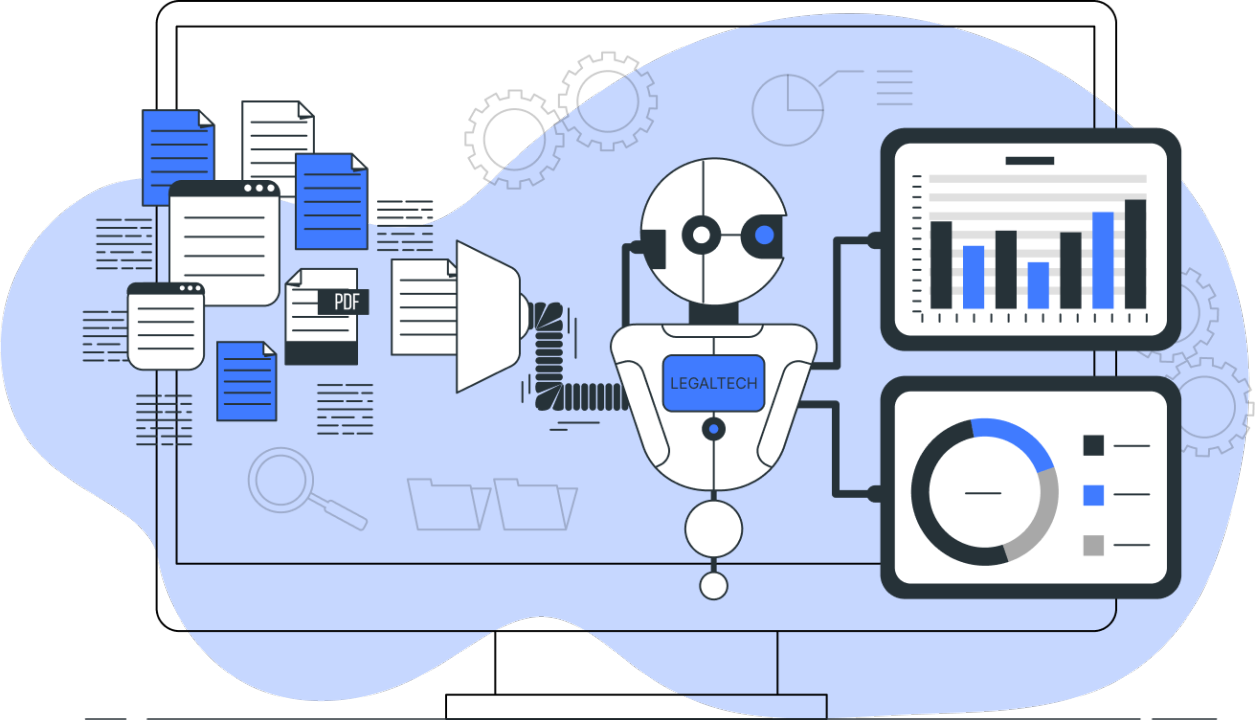The legal industry is undergoing a significant transformation driven by the integration of Artificial Intelligence (AI) into its core operations. As the intersection of technology and law, LegalTech is reshaping how legal professionals operate, enhancing efficiency, accuracy, and client service. This article explores the profound impact of AI in LegalTech, examining its applications, benefits, challenges, and the future of legal practice in an increasingly automated environment.
Understanding Artificial Intelligence in LegalTech
Artificial Intelligence refers to the development of computer systems capable of performing tasks that typically require human intelligence. In the context of LegalTech, AI encompasses various technologies, including Natural Language Processing (NLP), machine learning, and predictive analytics, which are utilized to streamline legal processes and enhance decision-making.
The legal profession has historically been slow to adopt technological advancements. However, the incorporation of AI is changing this narrative, offering innovative solutions that address the unique challenges faced by legal practitioners. As of 2023, the global LegalTech market was valued at approximately $29.66 billion and is projected to reach $35.6 billion by 2027, reflecting the growing interest and investment in this sector.
Key Applications of AI in LegalTech

AI is revolutionizing various aspects of legal practice, from document management to predictive analytics. Here are some of the key applications of AI in LegalTech:
1. Document Review and Analysis
AI-powered systems can perform document review and analysis much faster than human lawyers. By utilizing machine learning algorithms, these systems can read, understand, and extract relevant information from legal documents, significantly reducing the time and effort required for manual review. This capability is particularly valuable during due diligence processes, where large volumes of documents must be analyzed for relevant information.
2. Contract Analysis and Management
AI tools can streamline contract analysis and management by automatically identifying key clauses, obligations, and risks within contracts. This not only speeds up the contract review process but also enhances accuracy by minimizing human error. Additionally, AI can assist in drafting contracts by suggesting relevant clauses based on previous agreements and industry standards.
3. Legal Research
Traditional legal research methods often involve tedious manual searches through extensive databases of statutes, case law, and regulations. AI-driven legal research tools leverage advanced algorithms to analyze vast amounts of legal data, quickly identifying relevant precedents and statutes. This capability allows legal professionals to conduct research more efficiently and make informed decisions based on comprehensive data analysis.
4. E-Discovery
E-discovery, the process of identifying, collecting, and reviewing electronic data for legal cases, can be a daunting task. AI technologies excel in automating document review and data extraction during the e-discovery process. By utilizing machine learning, AI can sift through large volumes of data, identifying relevant documents with exceptional speed and accuracy, ultimately saving time and reducing costs.
5. Predictive Analytics
Predictive analytics involves analyzing historical data to identify patterns and trends that can inform future outcomes. In the legal context, AI can analyze past case outcomes to predict the likelihood of success in similar cases. This capability allows lawyers to make more informed decisions regarding case strategy and client advisement.
Benefits of AI in LegalTech
The integration of AI into the legal profession offers numerous benefits, including:
- Increased Efficiency: AI automates routine tasks, allowing legal professionals to focus on more complex and strategic work. This increased efficiency can lead to reduced billable hours and improved client satisfaction.
- Enhanced Accuracy: By minimizing human error, AI tools improve the accuracy of legal work. This is particularly important in document review and contract analysis, where even minor mistakes can have significant consequences.
- Cost Savings: Automating repetitive tasks and streamlining processes can lead to substantial cost savings for law firms. By reducing the time spent on manual tasks, firms can allocate resources more effectively and improve profitability.
- Improved Client Service: With AI handling routine tasks, legal professionals can dedicate more time to client interactions and strategic decision-making. This enhanced focus on client service can lead to stronger relationships and better outcomes.
- Data-Driven Decision Making: AI provides legal professionals with valuable insights derived from data analysis. This data-driven approach enables lawyers to make more informed decisions and develop effective legal strategies.
Challenges and Ethical Considerations
Despite the many benefits of AI in LegalTech, several challenges and ethical considerations must be addressed:
- Data Privacy and Security: The use of AI in legal practice involves handling sensitive client data. Law firms must ensure that appropriate measures are in place to protect this data from breaches and unauthorized access.
- Bias in AI Algorithms: AI systems are only as good as the data they are trained on. If the training data contains biases, the AI algorithms may perpetuate these biases in their analysis and recommendations. Legal professionals must be vigilant in identifying and mitigating bias in AI systems.
- Job Displacement Concerns: The automation of routine legal tasks raises concerns about job displacement for entry-level legal professionals. While AI will not replace human lawyers, it may change the nature of legal work, necessitating a shift in skill sets and roles within the industry.
- Accountability and Ethical Responsibilities: The integration of AI into legal practice raises questions about accountability and ethical responsibilities. Lawyers must ensure that they maintain oversight of AI-driven processes and uphold their professional obligations to clients.
The Future of AI in LegalTech
The future of AI in LegalTech is promising, with continued advancements expected to shape the legal profession. As AI technology evolves, it will likely become more sophisticated, enabling legal professionals to tackle increasingly complex tasks.
- Integration of AI and Human Expertise: The most effective use of AI in legal practice will involve a collaborative approach, where AI tools augment human expertise rather than replace it. Lawyers will need to develop new skills to effectively leverage AI technologies in their work.
- Regulatory Developments: As AI becomes more prevalent in the legal industry, regulatory bodies may introduce guidelines to govern its use. Legal professionals must stay informed about these developments to ensure compliance and ethical practice.
- Continued Investment in LegalTech: The growing interest in LegalTech among investors and startups will likely lead to further innovations in AI applications for the legal profession. Law firms that embrace these advancements will be well-positioned to gain a competitive advantage.
Conclusion
Artificial Intelligence is transforming the legal profession, offering innovative solutions that enhance efficiency, accuracy, and client service. While challenges and ethical considerations remain, the potential benefits of AI in LegalTech are substantial. By embracing AI as a supportive tool, legal professionals can navigate the complexities of modern legal practice and deliver greater value to their clients. The integration of AI into the legal industry is not just a trend; it represents a fundamental shift that will shape the future of legal services for years to come.

Leave a Reply